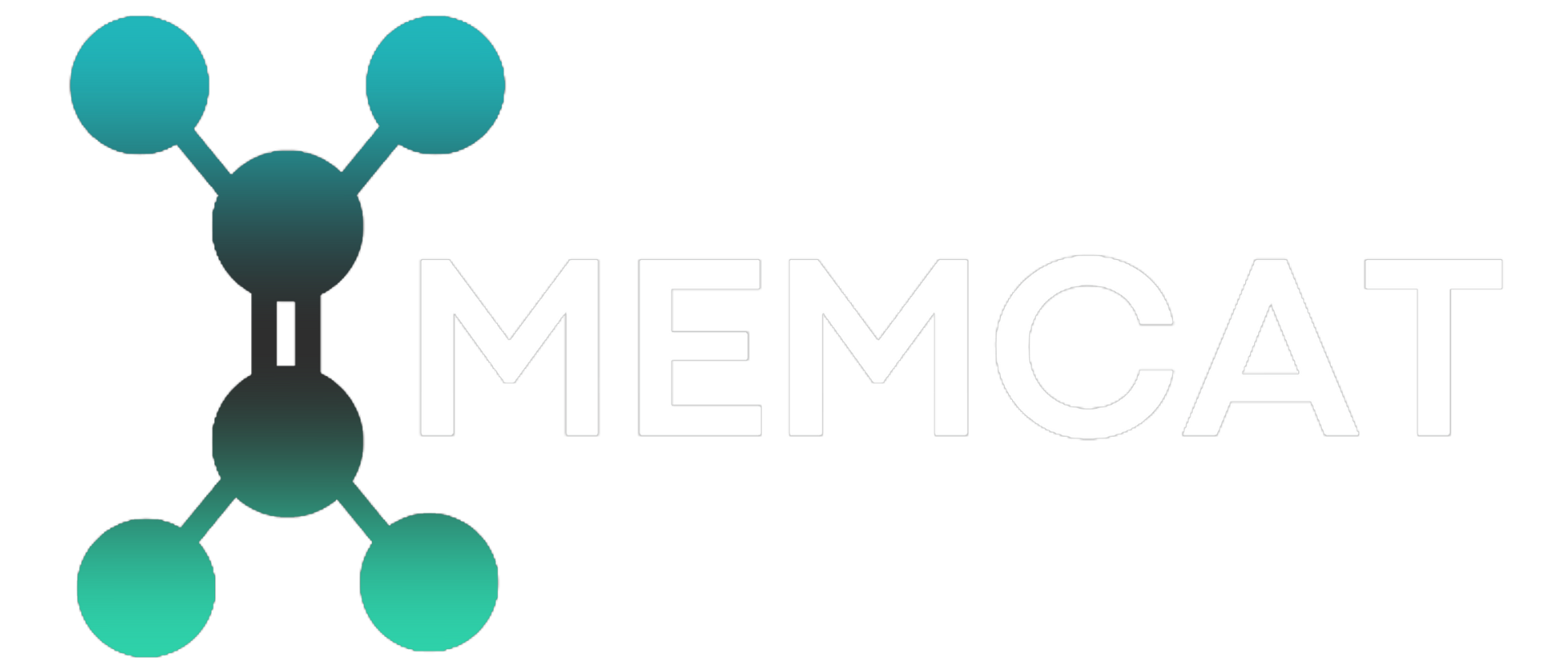MemCat targets to deliver a proof-of-concept for the direct conversion of CO2 to ethylene by realizing tandem catalysts, which
through nanostructuring will allow for consecutive CO2-to-methanol and methanol-to-ethylene conversions to occur in the same operational window.
A fundamental understanding of the parameters governing the reactions will be gained through detailed
operando studies of the tandem catalysts, which, in combination with theoretical calculations, will lead to the underpinning of the
reaction mechanism and allow the rational improvement of the nanostructured catalysts to achieve an industry-relevant level of performance.
Building on the consortium’s know-how, the catalysts will be deployed in a membrane reactor featuring a combination
of tailored nanocomposite membranes, giving access to ethylene in a selective manner and high yield for the first time.
The MemCat science-to-technology breakthrough will be achieved through a synergy of synthesis, catalysis, and theory to obtain novel
nanostructured tandem catalysts, and the development of nanocomposite membranes for a prototype catalytic membrane reactor, replacing current multi-step conversion pathways with existing catalysts.
The long-term vision of MemCat is to give access to green e-Polymers by providing carbon-negative plastic precursors using anthropogenic CO2 and green H2.
The project will contribute to establishing the EU as the world leader in the use of CO2 as feedstock for chemical production.

The project MemCat aims to enable the use of CO2 as feedstock for commodity chemicals, specifically targeting ethylene (ET) production. This is to be achieved through selective CO2-to-ET conversion using nanostructured tandem catalysts and nanocomposite membranes in a novel membrane reactor (MR).

The MemCat technology represents a significant advancement in sustainable chemical production by utilizing captured CO2 as feedstock for light-olefin products, contrasting with traditional fossil-based sources.

MemCat aims to revolutionize plastic production by creating carbon-negative plastic precursors from captured CO2 and renewable H2, thus introducing e-Plastic—renewable carbon-negative plastic. Ethylene (ET), a key chemical with extensive industrial use, is targeted for production.







